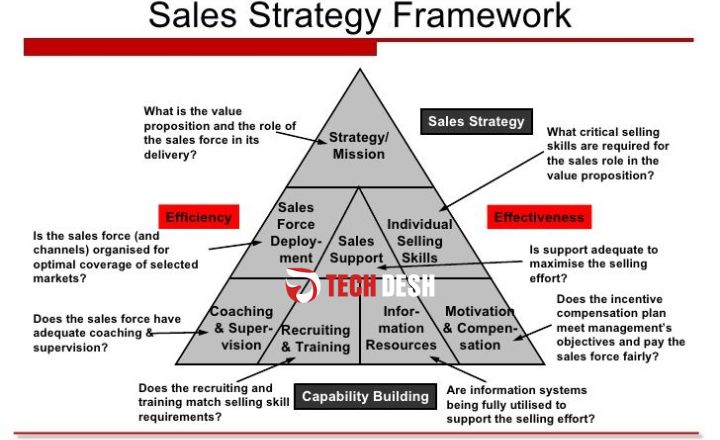In today’s rapidly evolving business landscape, effective sales strategies are more crucial than ever. Companies are constantly searching for innovative approaches to enhance their sales performance, and one name that has emerged prominently in this field is William Scaling Sales. This article explores the principles, strategies, and impact of William Scaling Sale on businesses seeking to optimize their sales processes and achieve sustainable growth.
The Philosophy Behind William Scaling Sales
William Scaling Sales represents a comprehensive approach to transforming sales operations. It is built on the premise that traditional sales techniques are no longer sufficient in a world that demands agility, customer-centricity, and data-driven decision-making. At its core, the philosophy of William Scaling Sale is about scaling the sales process effectively while ensuring that the sales team remains motivated, informed, and equipped to meet the demands of their customers.
Understanding the Key Components
- Data-Driven Insights: One of the hallmarks of William Scaling Sale is the emphasis on leveraging data analytics to inform sales strategies. By analyzing customer behavior, market trends, and sales performance metrics, businesses can tailor their approaches to better meet customer needs and enhance conversion rates.
- Customer-Centric Approach: Traditional sales methods often focus on pushing products or services onto customers. In contrast, William Scaling Sale advocates for a customer-centric approach, emphasizing the importance of understanding customer pain points and aligning solutions accordingly. This shift not only improves customer satisfaction but also fosters long-term relationships.
- Agile Sales Teams: The modern sales landscape requires teams that can adapt quickly to changes. William Scaling Sale promotes the development of agile sales teams that are empowered to make decisions and pivot strategies based on real-time feedback and market conditions. This flexibility allows organizations to respond more effectively to customer demands and competitive pressures.
- Continuous Learning and Development: Another critical aspect of this approach is the commitment to ongoing training and development. Sales teams must be equipped with the latest knowledge and skills to thrive in an ever-changing environment. William Scaling Sale emphasizes the importance of regular training sessions, workshops, and access to resources that keep sales professionals informed and engaged.
Implementing William Scaling Sale in Your Business
To successfully implement the principles of William Scaling Sale, businesses should consider a structured approach that includes the following steps:

Step 1: Assess Current Sales Processes
Before making changes, it’s essential to evaluate existing sales processes. Identify strengths and weaknesses, and gather feedback from sales team members. Understanding the current landscape will provide a foundation for implementing new strategies.
Step 2: Integrate Data Analytics
Invest in data analytics tools that can provide insights into customer behavior and sales performance. By analyzing data, businesses can identify trends, forecast sales, and make informed decisions about resource allocation. This data-driven approach enables organizations to tailor their offerings to meet customer needs effectively.
Step 3: Foster a Customer-Centric Culture
Encourage a culture that prioritizes customer needs. Train sales teams to listen actively and understand customer pain points. Implement strategies that focus on building relationships rather than simply closing deals. This customer-centric approach will lead to improved satisfaction and loyalty.
Step 4: Empower Agile Sales Teams
Create an environment where sales teams feel empowered to make decisions. Encourage collaboration and communication among team members. By fostering an agile mindset, sales teams can adapt quickly to changing market conditions and customer demands.
Step 5: Invest in Continuous Learning
Establish a culture of continuous learning within the sales organization. Provide opportunities for training, mentorship, and professional development. Keeping sales teams informed about industry trends and new techniques will enhance their effectiveness and confidence.
Case Studies: Success Stories
Several organizations have successfully implemented the principles of William Scaling Sale, resulting in transformative changes to their sales processes and overall business performance.
Case Study 1: Tech Innovations Inc.
Tech Innovations Inc., a software development company, faced declining sales in a competitive market. By adopting the William Scaling Sale approach, they implemented data analytics to assess customer usage patterns and feedback. This insight allowed them to refine their product offerings and enhance customer support.
As a result, Tech Innovations Inc. not only improved customer satisfaction but also increased their sales by 30% within a year. The agile sales team was able to adapt to customer needs quickly, leading to higher conversion rates.
Case Study 2: Green Solutions Co.
Green Solutions Co., a provider of sustainable energy solutions, applied the customer-centric principles of William Scaling Sale to their outreach efforts. By actively engaging with customers and understanding their sustainability goals, the sales team was able to tailor solutions that aligned with customer values.
This approach led to increased trust and loyalty among customers, resulting in a significant increase in repeat business. Green Solutions Co. reported a 40% growth in sales over two years, showcasing the effectiveness of a customer-first mentality.
Case Study 3: Consumer Goods Corp.
Consumer Goods Corp. struggled with high turnover rates among sales staff and inconsistent performance. By investing in continuous learning and development, they established a robust training program that emphasized product knowledge, sales techniques, and customer engagement strategies.
As a result, employee satisfaction improved, and turnover rates decreased significantly. The sales team became more confident and effective, leading to a 25% increase in overall sales performance within the first year of implementing continuous learning practices.

The Future of Sales
As businesses continue to navigate the complexities of the modern market, the principles of William Scaling Sale will play a pivotal role in shaping the future of sales. Companies that embrace data-driven decision-making, prioritize customer relationships, and foster an agile sales environment will be better positioned to thrive.
The Role of Technology
Technology will continue to be a driving force in the evolution of sales strategies. Innovations such as artificial intelligence, machine learning, and customer relationship management (CRM) systems will enhance the capabilities of sales teams. By integrating these technologies into their processes, businesses can streamline operations, gain deeper insights, and improve customer engagement.
Emphasis on Personalization
Personalization will become increasingly important in sales. Customers expect tailored experiences that resonate with their unique needs and preferences. William Scaling Sale encourages organizations to leverage data to create personalized interactions that foster stronger connections with customers.
Collaboration Across Departments
Sales teams cannot operate in isolation; they must collaborate with marketing, customer service, and product development teams. A holistic approach that aligns all departments around common goals will enhance the effectiveness of sales efforts. William Scaling Sale
Conclusion
William Scaling Sales represents a transformative approach to sales that prioritizes data-driven insights, customer-centric strategies, and agile team dynamics. As businesses face new challenges and opportunities in the marketplace, adopting these principles can lead to significant improvements in sales performance and customer satisfaction.
By evaluating current processes, integrating data analytics, fostering a customer-centric culture, empowering agile teams, and investing in continuous learning, organizations can harness the power of William Scaling Sale to drive growth and success. The future of sales lies in embracing innovation, personalization, and collaboration, and businesses that adapt to these changes will thrive in an ever-evolving landscape.


